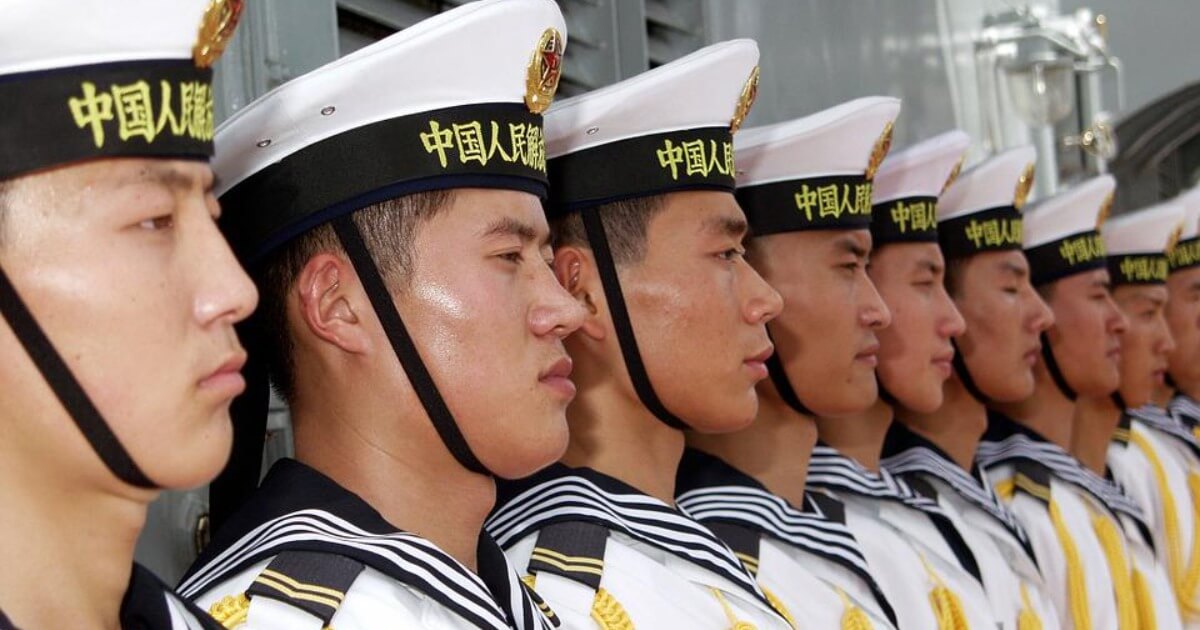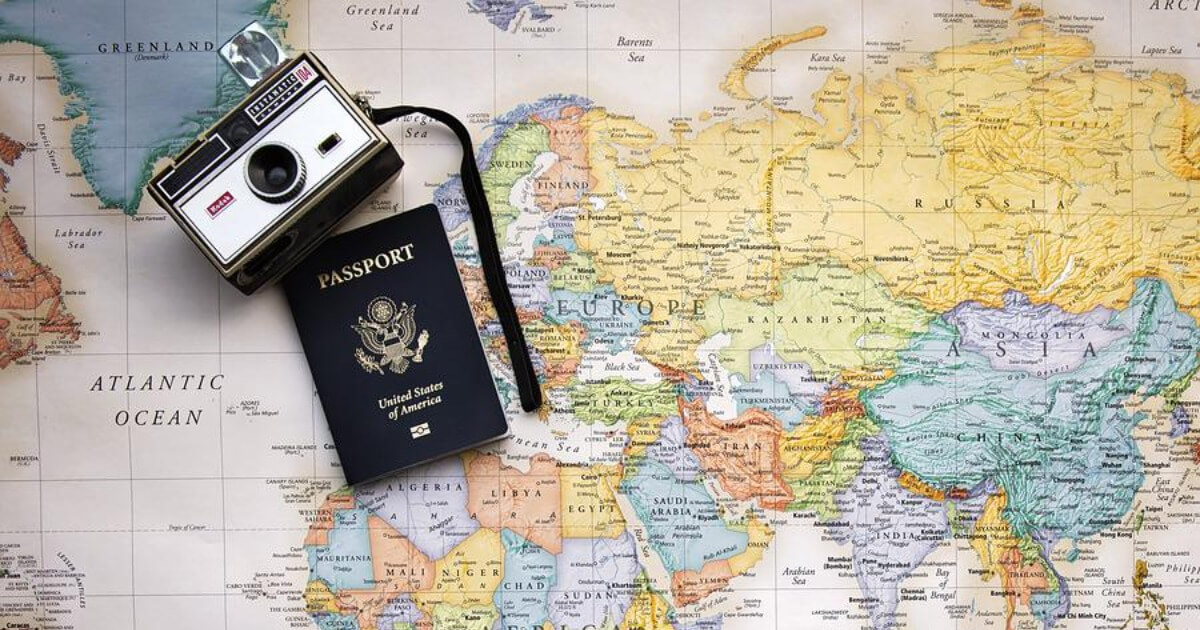1971: Big Shifts in China and in the U.S.
The year when China was brought out of its shell — and the U.S. started learning about unsuccessful interventions.
December 28, 2021

Henry Kissinger’s secret trip to China in July 1971, in the words of his biographer Niall Ferguson, “fundamentally altered the global balance of power.”
How so? China was inserted into the U.S./U.S.S.R. cold war calculus.
Lenin observed, “there are decades when nothing happens, there are weeks when decades happen.”
Other events 50 years ago shaped the world in which we live
Earlier that same year, in May of 1971, youthful protesters camped out for three days in Washington, D.C. They demanded an end to America’s disastrous war in Vietnam.
One hundred thousand people, myself included, marched past the White House. In those days of turmoil, 12,000 were detained — the biggest mass arrest in U.S. history.
Daniel Ellsberg and the Pentagon Papers
A month later, military researcher Daniel Ellsberg released the Pentagon Papers, an explosive, previously secret account of America’s involvement in Vietnam.
Ellsberg, a former marine, was charged with espionage but his case never went to trial.
Dan Ellsberg, now 90, continues to warn of the perils of nuclear war. His recent book on the subject, The Doomsday Machine, is dedicated “to those who struggle for a human future.”

As Lenin suggested, sometimes events unfold swiftly, other times slowly.
First Kissinger, then Nixon in China
Kissinger’s mission paved the way for President Nixon’s historic visit in 1972. His trip marked the moment when China began to open itself to the West.
At the time, China was essentially sealed off from the outside world, paralyzed by the ten-year-long Cultural Revolution that had been launched by Chairman Mao Zedong.
That disruption had transformed Chinese youth into frenzied Red Guards waving little red books sweeping through cities and villages denouncing “capitalist roaders.”
China’s perceived threat from Russia
Interestingly, back then China had been quarrelling, even fighting, with Russia, its erstwhile communist ally.
Premier Zhou Enlai, Kissinger’s interlocutor, sought an opening with Washington to mitigate the perceived Soviet military threat.
Strategic objectives converge
For his part, Nixon needed China’s help to extricate the U.S. from Vietnam. It was a rare convergence of strategic objectives.
Shortly after Kissinger’s visit, Lin Biao, Mao’s designated successor and instigator of his personality cult, was implicated in a plot to assassinate Mao.
In September Lin and his entourage died in mysterious circumstances, when their aircraft bound for sanctuary in Russia crashed in Mongolia.
Deng Xiaoping and China’s economic rise
The Kissinger and Nixon visits accelerated China’s moves to restore order. Two years after Mao’s death in 1976, twice-purged reformer Deng Xiaoping came to power.
Deng launched the market-based reforms that over four decades lifted 800 million people out of poverty, an achievement unmatched in human history.
Nixon dumps the gold standard
But 1971 was a point of departure not just for China policy. In August 1971, President Nixon closed America’s gold window, ending the fixed exchange rate system that permitted foreign nations to exchange dollars for U.S. gold at a price of $35 an ounce.
While it was sensible that Washington terminated an archaic, costly practice, Nixon’s August 15 announcement alarmed and disrupted global markets.
The fundamental reform of the monetary system
Within a few years, the world moved to a system of flexible exchange rates where market forces determine currency values. It has been a great success.
Economist C. Fred Bergsten calls flexible rates the “most fundamental reform of the international monetary system in the postwar period.”
1971 was not a year in which decades happened, rather it was a critical year in which two countries—China and the U.S. —altered the trajectories along which they were traveling.
Foothills and mountain passes of a new cold war
Henry Kissinger, now 98, said in an interview with Niall Ferguson two years ago that the United States and China “were in the foothills of a new cold war.”
Last year, as bilateral tension became further inflamed, he warned that the two countries had reached the “mountain passes” of a new cold war.
Dialogue at the highest level, said Kissinger, is essential for the preservation of world peace.
China’s dramatic reversals of direction
In the case of China, there have been dramatic reversals of direction within these five decades.
In preparing this essay, I took from my library shelf the little red book, Quotations from Chairman Mao Zedong, that was given to me at the Chinese embassy in Belgrade in 1967. These words are on the first page of its foreword:
- Mao Zedong’s thought is Marxism-Leninism of the era in which imperialism is heading for total collapse and socialism is advancing to world-wide victory. It is a powerful ideological weapon for opposing imperialism…
The author of the foreword was Lin Biao, the man who four years later was accused of plotting to assassinate Mao. I would guess that today’s entrepreneurial capitalists in China find Lin’s sentiments quaint, redolent of a different era.
The U.S. moves forward – and backwards
As for the U.S., of course there’s been dramatic changes in five decades. Technologically, there has been huge progress, but socially and politically, the country has probably moved backwards.
Arguably the United States is less unified than it was during the divisive anti-war and civil rights demonstrations of the 1960s.
The U.S. can no longer shape the world in its own image
Some elements of U.S. foreign policy reflect the worn hubris of a country that assumes it can shape the world in its own image.
Take South Vietnam and Afghanistan
Failed intervention is graphically illustrated by the almost identical images 46 years apart—Saigon and Kabul– of a helicopter lifting Americans from an embassy compound overrun by the adversaries the Americans spent so much blood and treasure fighting.
Takeaways
When China began opening up to the West, Premier Zhou Enlai sought an opening with Washington to mitigate the perceived Soviet military threat.
President Nixon needed China’s help to extricate the U.S. from Vietnam. It was a rare convergence of strategic objectives.
In the case of China, there have been dramatic reversals of direction within these five decades.
As for the U.S., technologically, there has been huge progress, but socially and politically, the country has probably moved backwards.
Lenin observed, “there are decades when nothing happens, there are weeks when decades happen.”
Read previous

Global Society
Why We Travel
December 25, 2021